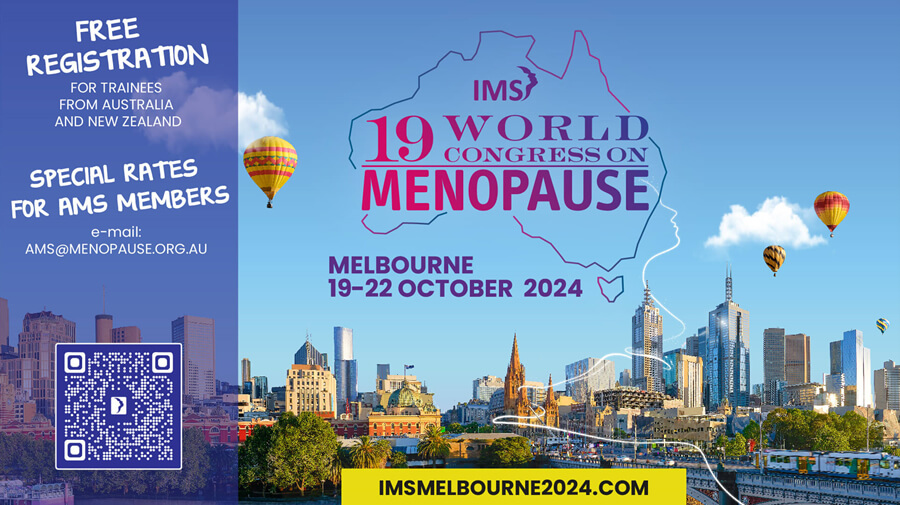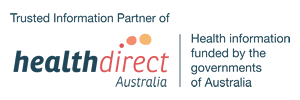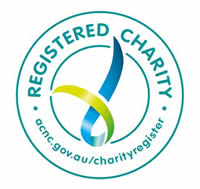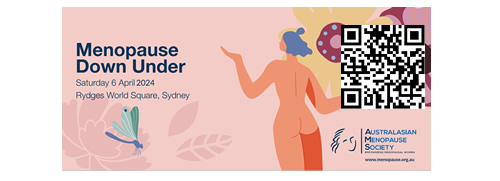Ethical aspects of conflicts of interests
May 2003 & June 2007
Table of contents
1. Executive summary
2. Introduction
3. Definitions of COI
4. The current regulatory environment
5. General principles for dealing with dualities and conflicts of interests
6. Conflicts of interest relating to the conduct of Society business
6.1 Some examples of possible COIs relating to conduct of Society business
6.2 Publications
6.3 Relations with industry
6.4 Summary of practical strategies for dealing with COI with respect to Society business
7. COIs relating to the conduct of individual members of the Society
7.1 Conflicts of interest relating to research
7.1.1 Some examples of COIs involving researchers
7.1.2 Clinical research
7.1.3 Basic research
7.1.4 Summary of strategies for dealing with COI in the conduct of research
7.2 Publications
7.2.1 Recommendations concerning publications
7.3 Conflicts of interest within the clinical practice setting
7.3.1 Some examples of COIs involving clinicians
7.3.2 Society members and the pharmaceutical industry
7.3.3 Gifts and entertainment provided to members
7.3.4 Remuneration for services and consultancies
7.3.5 Employment
7.3.6 Industry sponsorship for meetings, including for travel and accommodation for individual physicians
7.3.7 Members involved in clinical research
7.3.8 Summary of strategies for dealing with COI within the clinical practice setting
8. Conflicts of interest arising in other settings
8.1 Examples of COIs arising in other settings
8.2 Training of physicians and scientists
8.2.1 Strategies for dealing with dualities and COIs arising in the training relationship
8.3 Responsibilities of physicians as members of ethics and related committees
8.4 Paid employment within universities, institutes, industry, Government and the Military, and membership of Government committees
9.0 Disclosures and Statements about Conflicts of interest for AMS Board Memebers
9.1 Agenda item at Board Meetings
9.2 Confidential review of disclosure forms
1. Executive summary
Financial and other dualities and conflicts of interests (COIs) arise in many different contexts in the work of the Australasian Menopause Society. The RACP Ethics Advisory Group has developed guidelines to assist Members and officers of AMS to identify and manage such dualities and COIs. Adopting a practical, non-punitive approach, specific issues and examples are examined relating both to the conduct of AMS business and to that of individual Members. Particular attention is given to questions arising with respect to publications, relations with industry, clinical research, basic research, clinical practice, and the training of physicians and scientists. In each of these areas specific recommendations are made to help with the resolution of problems.
The guidelines stress that effective management of COIs lies in identifying them, making clear declarations, maintaining openness and transparency, and developing appropriate structures to deal with specific issues. Specifically, it is suggested that the following sequence of events may prove helpful:
- individuals in identified areas of activity declare dualities of interest, whether financial or non-financial;
- these are considered by the relevant community - e.g. a committee or Board or group of individuals directly affected;
- an assessment is made concerning whether the dualities constitute a potential or actual conflict;
- if it appears that a conflict of interests is present or likely, practical strategies are devised to separate the pursuit of the conflicting interests; in some cases, this may entail withdrawal from or curtailing of a particular activity, while in others, it may be sufficient to delegate functions or roles to an individual, a group of individuals or a committee; and
- the decisions and practical outcomes are communicated to the constituency affected.
It is hoped that the guidelines will assist members in achieving and preserving the highest quality of individual and community health care and research, to the benefit of both medicine and the broader community.
2. Introduction and purpose
The Australasian Menopause Society acknowledges that financial and other dualities and conflicts of interests (COIs) arise in many different contexts in the work of the Society, in clinical, academic and other professional practices and in research. In view of this, the Society's Ethics Advisory Group has developed this discussion document, which includes guidelines for appropriate management of COIs. These guidelines stress that, in general, the key to effective management of COIs lies in identifying them, making clear declarations and maintaining openness and transparency, and developing appropriate structures to deal with specific issues. It is hoped that they will assist members in achieving and preserving the highest quality of individual and community health care and research, to the benefit of both medicine and the broader community.
It is recognised that all guidelines must assume the common sense and integrity of the individuals for whom they are written, while at the same time articulating general community standards. Furthermore, they must be available for public scrutiny and subject to revision in response to changes in ethical issues and attitudes. Accordingly, active debate and discussion about them within the Society is strongly encouraged.
3. Definition of conflicts of interests
Although many different ways of defining COI have been proposed all refer in some manner to the existence of relationships based on trust, reliance or dependence in which a potential conflict arises between duties or preferred courses of action. The concept of "interests", and the key distinction between "dualities" and "conflicts" of interest, may defined in the following terms:
An interest is a commitment, goal or value arising out of a social relationship or practice. A duality of interest arises when two or more interests are potentially in conflict, depending on the specific circumstances of an individual case. A duality may become a conflict of interest when a particular relationship or practice gives rise to two or more contradictory interests.
This definition emphasises certain important points, which are assumed in the remainder of this document:
i. The existence of dualities of interest is a fact of modern life, which reflects the diversity of modern societies and the plurality of roles individuals occupy within it. Inevitably, different roles may give rise to varying obligations, and therefore multiple dualities, some of which may, on occasions, erupt into conflicts.
ii. Whereas in common usage, the term "conflict of interests" is often taken to imply the existence of unethical behaviour, in reality, conflicts generally arise structurally in the absence of unethical behaviour: that is, COIs arise out of the facts and not from malign motivations. Furthermore, neither dualities nor COIs in themselves inevitably cause harm: it is the ambiguity about goals and values and the possibility for harm that arouse concern.
iii. Conflicts and dualities of interests include both financial and non-financial issues. In the medical and research settings the latter are often the most important and subtle.
iv. Resolution or avoidance of conflicts requires local action, which usually includes disclosure and debate to the relevant community and development of specifically devised institutional structures
4. The current regulatory environment
The area of COI is subject to a complex array of government and institutional requirements which vary from context to context. Individuals should ensure that they are familiar with the rules that apply in their own work settings. In general, these rules tend to emphasise financial conflicts of interest and to set standards for disclosure and reporting. It is important to remember, however, that dualities and conflicts of interest are not restricted to financial matters and that, while transparency is important, it is often not sufficient to ensure adequate protection of all the parties involved.
Perhaps the most comprehensive COI policies are to be found in the United States, where the National Institutes of Health (NIH), Food and Drug Administration (FDA) and professional associations have all developed policies on COIs, which are broadly similar but not identical. The NIH has tended to discourage researchers from holding equity interest in any company that could be affected by their research and requiring disclosure of all financial interests by investigators, regardless of the relevance of such arrangements to their research. The FDA rules limit their attention to "significant financial interests" that "would reasonably appear to be affected by the research," and require researchers to "manage, reduce, or eliminate" the interest within 60 days. Many professional associations have developed their own policies. One influential example is that of the American Association of Medical Colleges, which regards "all significant financial interests in human subjects research as potentially problematic" and proposes "the rebuttable presumption that an individual who holds a significant financial interest in research involving human subjects may not conduct such research," with the intention of limiting the conduct of human subjects research by financially interested individuals to those situations in which the circumstances are "compelling".
5. General principles for dealing with dualities and conflicts of interests
In general, dualities and conflicts should be dealt with in an open and transparent manner. However, in many cases, this will not be sufficient. A suggested sequence of events, which may often prove helpful, is as follows:
i. Individuals in identified areas of activity are required to declare dualities of interest, whether financial or non-financial.
ii. These are considered by the relevant community - e.g. a committee or Board or group of individuals directly affected.
iii. An assessment is made concerning whether the dualities constitute a potential or actual conflict.
iv. If it appears that a conflict of interests is present or likely, practical strategies are devised to separate the pursuit of the conflicting interests. The complexity of these strategies may vary according to circumstances. In some cases, they may entail withdrawal from or curtailing of a particular activity, while in others, it may be sufficient to find an independent person to conduct one of the functions or to appoint a committee or group of individuals to discharge the particular function involved.
v. The decisions and practical outcomes are communicated to the constituency affected to ensure continuing transparency.
The details associated with each of these steps will, of course, vary according to the circumstances and the context.
6. Conflicts of interest relating to the conduct of Society business
There are many settings in which dualities and conflicts of interest may arise in the conduct of AMS business. These include AMS publications, dealings between pharmaceutical companies and the Society, including sponsorships of meetings, various Society programs, including Website programs, product advertising, and unrestricted grants. Personal interests, including shareholdings, of Board, Committee members and employees can also raise the potential for COIs.
6.1 Some examples of possible COIs relating to conduct of Society business
- A member of the Annual Scientific Meeting Organising Committee has financial interests that could be promoted through the selection of certain topics or the choice of certain meeting speakers.
- The Society is offered grants from industry for fellowships or organisation of meetings.
- The Society risks offending industry by publishing material critical of certain marketing practices.
6.2 Publications
One of the functions of the Society is to contribute to the development of the understanding of medicine via the publication of an occasional newsletter. There are several settings in which conflicts of interests can arise. These include circumstances where editors, reviewers or others involved in the publication process have a personal interest in the content of an article submitted for publication: perhaps the commonest such example of this is where a reviewer is working in a similar area and could benefit from a delay in the publication of the article in question; a somewhat rarer example would be circumstances in which an editor could possibly benefit from promotion of his/her own work. Conflicts of interest could also arise in relation to an article submitted for publication may have implications for the Society as a whole - for example, where it reflects on the practices of sponsors of the Society: the possibility of such payments also has the capacity to influence editorial decision making.
Authors' disclosures should be required in all cases and published together with the corresponding articles. Reviewers, editors and committee members associated with publications should be asked to declare dualities of interest and those with significant conflicts of interest should be excluded from consideration of the particular manuscripts involved. Journal editors should also recuse themselves from reviewing work in which a potential or actual conflict of interest exists and transfer responsibility to an alternative editor. Where a journal achieves substantial income from sale of reprints this should be disclosed to readers.
The Society also has responsibility for ensuring that adequate declarations are sought from presenters at scientific meetings organised by the Society and in any publications, including abstract books, associated with such meetings. Where there is doubt about the possible implications of a particular article or other publishing issue for the Society, the matter should be reviewed by an independent committee.
6.3 Relations with industry
Scientific societies and industry have a mutually beneficial relationship. From time to time, the Society may receive financial support and industry may have an opportunity to showcase its advances to a sophisticated and responsive audience. However, the question of relations between the professions and industry is a very sensitive one in the community, and it is acknowledged that there are many settings in which conflicts of interests arise and associations between the Society and industry can lead to compromise of the Society's objectives and public standing.
For example, funding received from industry is often associated with an assumption that a reciprocal benefit will follow. The Society may be approached to participate in the marketing of medical products as well. It is important to recognise that the mere fact of an association with private industry may lead to a duality between the interest in strengthening the financial base of the Society and that of being publicly identified as an independent, disinterested contributor to debates about health and health policy.
Full disclosure of sponsorship of meetings and maintenance of independence in determining scientific content (including selection of sessions and speakers) are necessary. Even with safeguards, the risk remains that meetings (and sessions) may appear to be influenced by commercial enterprises. Complete disclosure of commercial support is required for all Society sponsored activities, as well as a balanced and objective presentation of data related to commercial products. Speakers should be required to indicate any dualities of interest at the time of their presentations, including any relationship to the session sponsor. Speakers should also be asked explicitly to ensure balanced presentations related to controversial issues, including presentation of advantages and disadvantages of specific therapies.
Although commercial sponsors may wish to pay the costs of individuals who attend a supported meeting this often creates serious dualities of interest. It is acceptable for trainees to receive funds to cover the costs of attending educational conferences, provided that the selection of the recipient is made by the training institution. Travel support for speakers is acceptable as part of their compensation.
Sources of commercial funding should not influence the scientific, educational or public policy decisions of the Society. Commercial supporters should not be able to influence the planning, content, speaker selection or execution of any program of the Society, and commercial sponsorships should not influence the subject matter of the annual meeting. It should be made clear that the display of commercial products or services at Society meetings or social event sponsorship are not to be taken to imply warranty, endorsement or approval of these products or services, or effectiveness, quality or safety.
While it is certainly appropriate for the Society to promote the study and increased awareness of specific medical conditions and to take positions regarding medical disorders and their treatment in the interest of public health, it is essential that the objectivity and credibility of the Society are not compromised through support for specific treatments or products. To avoid such compromise the Society should maintain a process of formal internal review of this aspect of its work. On occasions, the Society may make available to its members specific goods or services as a benefit (for example, discounts or group availability); however, in these cases, the rationale of the endorsement and the benefits to the members should be fully disclosed in advance.
6.4 Summary of practical strategies for dealing with COIs with respect to Society business
Dualities and conflicts of interest in the conduct of the business of the Society, including the publication process, should be approached in a systematic manner, which should at the least include the following steps:
- Establishment of a defined process for identifying dualities and assessing their potential to constitute conflicts and, if necessary, to develop strategies in response.
- Disclosure of financial and other interests to an appropriate forum within the Society, possibly to a small committee which includes representation from Board, the, Publications Committee, Ethics Advisory Committee and staff.
- Assessment of which interests are potentially relevant to the conduct of Society business and examination of potential for conflict.
- In the case of conflict, development of strategies to avoid compromise of either the individual involved or the work of the Society.
- Public disclosure of the outcomes of this process in an appropriate form.
7. COIs relating to the conduct of individual members of the Society
7.1 Conflicts of interest relating to research
COIs can arise in research as a result of the fact that investigators are paid for their services or have an interest in the outcome. Special issues arise in relation to investigator initiated research, epidemiological research, research undertaken by academics or industry employees, clinicians, including private practitioners. Questions that may need to be considered relate to the design of studies, the consent process, controls and analyses of the data, and decisions about publication. There may be direct and indirect conflicts arising from payments for services rendered, both for clinicians and as researchers involved in clinical research; what is "fair payment for services rendered" may not be unambiguous. There may be many non-financial motivations involved, including the possibility of increasing status, achieving fame, advancing a career. In many cases these may be more important that financial considerations.
The arguments about whether investigators with a direct interest in the outcomes of research should be permitted to participate in such research are complex, as indeed, are the organisation and structure of individual research projects. It is important that this complexity, and the full range of dualities and conflicts arising in relation to research, is appreciated and that a flexible, case-specific approach is maintained. In individual instances, it is often possible to identify specific pressure points at which dualities may erupt into conflicts and to devise specific strategies to protect the integrity of the research process.
7.1.1 Some examples of COIs involving researchers
- A researcher has a direct financial interest in the outcome of a trial in which he/she is engaged, in the form of shares, share options, and bonuses.
- A researcher stands to gain in non-financial ways from the success of a trial, by enhanced public status or career prospects.
- A physician/researcher recruits his/her own patients for a study in which he/she is involved.
- A researcher is paid for conducting a study by a drug company.
- A researcher is employed directly by pharmaceutical company.
- A researcher is asked to review a paper or grant application that bears on her/his own work
- A researcher has to make a decision about whether to publish unfavourable or negative results, as a result of which her/his career may be damaged and financial benefits may be lost.
7.1.2. Clinical research
Multiple interests (dualities) are often served by clinical research, leading to the potential for real or perceived conflicts of interest. For example, a primary commitment to provide optimal patient care and protect the patient may coexist with the desires to advance scientific knowledge and to achieve professional recognition. In addition, clinical researchers may have financial interests in the conduct or outcome of clinical trials. Opportunities to profit from research financially or academically may affect - or appear to affect - researchers' judgments relating to the primary obligation to protect patients' interests.
Clinical researchers may benefit from their research financially, through investment in, or ownership of, companies sponsoring clinical trials, as a result of which they may have beneficial interests in the outcomes of these trial, or through payment for work performed in enrolling and managing patients in studies. They may also benefit from their research through non-financial means, such as career advancement based on reporting of new scientific information and academic recognition through association with successful landmark clinical research.
These dualities may not themselves result in harm but may raise concern because of their potential to do so. In dealing with potential or actual conflicts, significant financial interests in human subject research should be disclosed to regulators as required by statute or regulation, to research funders or sponsors, to the editors of any publication to which a covered individual submits a manuscript concerning the research, and in any substantive public communication of the research results, whether oral or written. Financial compensation for participating as an investigator in a clinical trial should be commensurate with work performed. In no event should referral fees be paid to investigators or other clinicians. Any assistance received for a project should be paid into a specially designated fund established for the conduct of clinical research which is subject to auspice and audit according to established institutional guidelines. Research consent forms should disclose the existence of any significant financial interest held by individuals involved in conducting the clinical trial. Obviously, in all cases, relevant government and institutional guidelines should be observed.
Clinical researchers may influence study design (including selection of study drug doses and comparison with placebo or active comparator), patient selection, data collection and analysis, adverse event reporting, or the presentation and publication of research findings. There is an obligation on both the researcher and the ethics committee to assure an adequate study design to accomplish the study objectives. Where dualities arise - as in the examples mentioned above - special arrangements may need to be created to separate the decision making functions that could be at odds. These will often include the appointment of independent researchers to approach and interact with participants, arm's length processes to collect, store and analyse data and to monitor safety, and the development of clear policies regarding publication or dissemination of results. The complexity of these arrangements will depend on the nature of the duality and the structure of the research project itself.
7.1.3. Basic research
As with clinical research, COIs can arise in basic research as a result of both financial and non-financial interests, and the principles for dealing with them are the same. Examples of such conflicts include cases in which investigators are paid for specific services or where a pharmaceutical or biotechnology company funds a project overall. Financial conflicts may also arise when an investigator becomes involved in a commercial venture that may impinge on other aspects of his/her own research; in this case, more subtle conflicts may also arise as a result of diversion of faculty effort from the university to the financial entity. Conflicts of these kinds are usually dealt with at the level of the institution. Competing interests between a company and an investigator in the academic setting may also pose a threat to open scientific discourse.
In addition to financial COIs, conflicts can occur between the interests of mentors and of their students (discussed in 8.2). As many basic science laboratories train graduate students and postdoctoral fellows in the course of the research, the responsibilities of the mentors and trainees must be clearly defined (see 8.2.1). Other non-pecuniary conflicts of interest in basic research can also arise from the peer-review process used for grant and manuscript reviews. Peer review requires that reviewers are not only knowledgeable, but are also objective and impartial, and that the reviewer's interests do not bias the outcome of the review. Investigators may benefit from the review process by delaying or rejecting publication of a competing manuscript, by giving a competing grant a score that would not garner funding, or by gleaning information from a manuscript or grant they are reviewing that may be useful to their own research.
Control of COIs in the peer review process may be very difficult as the system relies heavily on the good faith of reviewers. Journals and granting bodies should routinely require statements of dualities of interest and should emphasise that where conflicts exist reviewers should have a low threshold for recusing themselves. In general, the more open and transparent the process the more likely it is that conflicts will be contained.
7.1.4. Summary of strategies for dealing with COI in the conduct of research
- Significant financial interests should be disclosed.
- Investigators should not derive direct personal or financial benefit from the conduct of a pharmaceutical company sponsored clinical trial.
- Notwithstanding this, adequate compensation should be provided for personal expenses arising from the trial, including reimbursement of practice expenses.
- Compensation must reasonably relate to income or time lost and should be administered under a contractual arrangement open to scrutiny.
- Where the possibility of a conflict of interests arises special arrangements should be made to separate the conflicting functions: for example, by the appointment of independent individuals or committees to communicate with patients or collect or manage data.
- Remuneration should be paid into a fund used to finance execution of the study and subject to appropriate institutional audit.
7.2 Publications
Possible ways in which dualities or conflicts of interest may arise in the field of publications, and strategies to deal with them, have been discussed above. Authors and those asked to act as reviewers of articles, should take care to disclose financial or other interests. Some journals require additional disclosure in reporting the results of sponsored clinical trials, such as ownership of the data, and contributions of the named authors, including persons responsible for the analysis and drafting the manuscript. The peer review process raises other issues concerning dualities of interest on many occasions. Reviewers are called upon to exercise their judgement in a fair and reasonable manner and to recuse themselves if they are unable to do so.
There is a tendency to favour publication of results of 'positive' clinical trials, even though much can undoubtedly also be learned from 'negative' studies. Both authors and journals should support attempts to publish the results of all clinical trials where scientifically appropriate.
7.2.1. Recommendations concerning publications
- Authors should make full disclosures in reporting the results of sponsored clinical trials, including the contributions of the named authors, who conducted the analysis, who wrote the paper and who owns the data.
- Publication of data should not be limited by the commercial interests and contracts with sponsors should reflect this.
- Reviewers should declare dualities and take pains to ensure that their comments are not influenced by personal interests.
7.3 COIs within the clinical practice setting
Dualities and conflicts of interest in clinical settings may arise from the relationships of physicians with pharmaceutical industry, and with regard to research, teaching and other professional and employment responsibilities. They include involvement of physicians in and interactions with managed care organisations, educational opportunities funded by third parties, and honoraria for participation in education programs. The principle guiding the development of policies regarding dualities on interests relating to the clinical setting is that the relationship between physician and patient should not be compromised by commercial or other interests that could subvert the principle that the interests of the patient should be primary.
7.3.1 Some examples of COIs involving clinicians
- A clinician is offered money by a contract research organisation to supply lists of names of her/his patients.
- A clinician is offered an air fare by a pharmaceutical company to travel to an international meeting.
- A clinician is offered gifts from a pharmaceutical company representative.
- A clinician involved in research considers actively recruiting her/his own patients.
- A clinician employed by a private company is offered bonuses tied to profits.
7.3.2. Physicians and the pharmaceutical industry
Of particular concern to the public and to physicians are relationships of physicians with the pharmaceutical industry. Physicians and the pharmaceutical industry share common goals in that they are engaged in the treatment of disease and the conduct of research directed toward improvements in treatment. However, there are also divergent interests, as a result of the fact that the primary responsibilities of those working in industry are to their shareholders, whereas physicians act as the agents of their patients.
The promotional activities of the industry attract special attention. These can take many forms, including overt advertising and the provision of gifts and perquisites to individual physicians or to their employing institutions. Arrangements between physicians and pharmaceutical companies should be open and transparent. Where the possibility of a conflict of interest could be raised, regardless of the context, this should be declared openly to all relevant parties. In many cases this will require disclosure of financial or other arrangements to institutions, ethics committees, patients, potential research subjects and others. Such disclosures of dualities do not in themselves imply the existence of conflicts of interest, but merely allow public scrutiny to ensure that such conflicts do not develop. The ultimate test for the effective management of conflicts of interest in this setting is that benefits received from pharmaceutical companies - whether in cash or kind, or as gifts, hospitality or subsidies - leave physicians' independence of judgment unimpaired and do not influence decisions they might make concerning the welfare of their patients.
7.3.3. Gifts and entertainment provided to physicians
There is evidence that acceptance of gifts by physicians is associated with an increased likelihood that they will prescribe products produced by pharmaceutical companies, even in the absence of scientific data to support such clinical decisions. This includes not only discrete gift items, but also payment for dinners, entertainment or expenses associated with daily living. Physicians must judge for themselves what is and is not acceptable but, to avoid impairment of their judgement, should err on the side of rejection of gifts. In particular, while service oriented items may on occasions be acceptable - for example, patient counselling or teaching aids - non-service oriented items should in general not be accepted.
7.3.4. Remuneration for services and consultancies
Individual physicians may act as consultants for, or provide other services to, pharmaceutical or other companies, and physicians are entitled to fair remuneration for the services they provide. However, such relationships with industry often create dualities of interests, and may on occasion produce the impression of a conflict between duties to industry and to patients. For example, if a physician becomes publicly associated with the products of a particular company the question may be raised as to whether his/her recommendations to patients are based on an unbiased assessment of equivalent, perhaps cheaper, products from other companies.
The relationship of a physician with a particular company should be reported to and recognised by all relevant committees as well as to the physicians' patients. The ways in which the details of such a relationship are reported will vary from setting to setting depending on the nature and rules of operation of the committee, and may include submission of prescribed forms, public notices, or simply verbal communications.
7.3.5. Employment
Physicians may be directly employed in the pharmaceutical or other industry, or be subject to contracts that apply the principles of "managed care". In these circumstances conflicts of interest may arise because of requirements imposed on physicians as conditions of their employment. For example, managed care organisations commonly impose limits on the amount of care and kinds of treatments that are available and may actively intervene in the clinical relationship to direct doctors' decisions.
The implications of such employment arrangements have been discussed elsewhere. Where conflicts arise physicians should inform their patients of the nature of the differences and their implications. In some cases, they may need to make difficult decisions about whether it is ethical to continue to work in this setting.
7.3.6. Industry sponsorship for meetings, including for travel and accommodation for individual physicians
The pharmaceutical industry provides sponsorship for organising meetings and to physicians for attending them. While this sponsorship is provided with the expressed aim of contributing to continuing education, the manner in which it is provided may leave the reasons for its provision open to other interpretations. In addition, there is evidence that such sponsorship affects the decisions physicians make in their clinical practices. In particular, there is evidence that clinical decisions are often not based on objective scientific data and may not contribute optimally to patient care. Accordingly, sponsorship of this sort carries a clear risk of influencing physicians' capacities to make disinterested decisions on behalf of their patients. In view of this risk, great care should be exercised before accepting travel sponsorship or gifts and in ensuring that the nature of sponsorship or gifts and any obligations associated with them are declared openly to those with an interest in knowing.
The ideal manner for industry to provide sponsorship of scientific meetings is through independent organising bodies for which the costs of bringing in invited speakers are defrayed by the funds provided by industry, with the cost of travel and attending such meetings met by physicians because of their educational value. In accepting sponsorship outside these arrangements, the physician needs to determine that the sponsorship is clearly linked to education; that there is no loss of professional independence through accepting the sponsorship; and that there would be no reservation regarding the sponsorship being publicly scrutinised.
In addition to support for clinical and scientific meetings organised by independent organising committees, pharmaceutical companies provide sponsorship to physicians to participate in a variety of meetings. These include launches of pharmaceutical products, local meetings of specialist groups which usually have an independent organiser or organising committee, and hospital grand rounds and departmental scientific meetings. While these meetings usually have a clearly defined primary educational aim, they may be open to the suspicion that they will result in clinical decisions of physicians being influenced by their personal associations with aspects of the pharmaceutical industry. Physicians involved in organising or attending such meetings need to have a high level of awareness of this risk. They should take care to avoid any secrecy regarding the source and extent of sponsorship and take deliberate steps to ensure that the primary educational purposes of the meetings are achieved.
7.3.7. Physicians involved in clinical research
Conflicts of interests arising in the setting of clinical research have been addressed above. A particular issue for practising physicians concerns the recruitment of patients under their care for research studies in which they are personally involved. This raises the possibility of a conflict between a physician's interest in conducting the research most effectively and that of making clinical judgements in the best interests of his/her patients.
In general, it is undesirable for physicians engaged in research involving their own patients to be primarily responsible for the conduct of the consent process. Where possible, information should be provided and discussion should be undertaken through third parties who do not have a clinical relationship with the patients involved. In the event that a patient of a physician is recruited for a research study in which the physician is involved, it is imperative that the latter explain clearly the nature of his/her involvement, the risks involved, and the advantages or disadvantages of participation by the patient.
Where, in a particular research project, a conflict could arise between the requirements of research and those of clinical decision making it is essential that a clear disclosure should be made to the patient, together with a presentation of the options available to him/her. In many cases it will be appropriate for the physician to cease to manage the patient clinically during the conduct of that project, at least in relation to the particular issues that are addressed in it.
7.3.8. Summary of strategies for dealing with COI within the clinical practice setting
- Significant financial and non-financial interests that could compete with patient care should be disclosed.
- Where the possibility of a conflict of interests arises special arrangements should be made to avoid the conflict or to separate the relevant functions: for example, either by refusing an offer for sponsorship or by the appointment of an independent researcher to approach potential participants in research.
- Physicians should take care with respect to the acceptance of gifts or other perquisites from industry, where possible limiting them to those of direct relevance to patient care.
- Acceptance of travel sponsorship to a meeting should generally be limited to physicians making an active contribution.
- Adequate payments should be made for services provided, including reimbursement of practice expenses, and should be administered under a contractual arrangement open to scrutiny.
8. COIs arising in other settings
There are various other settings in which dualities of interests or COIs may arise. These include educational contexts, involving the training of physicians or scientists, circumstances involving arrangements between pharmaceutical companies and institutions or university departments, other cases involving paid employment and teaching responsibilities - within universities, institutes and private industry, and the conduct of the work of ethics committees.
8.1 Examples of COIs arising in other settings
- A researcher wishes to use a student to complete a project that might not directly contribute to the latter's educational needs.
- A trainee is hesitant to discuss perceived unfairness on the part of his/her mentor with other departmental members for fear that such a discussion would cause him/her to lose favour with his/her mentor.
- A member of an ethics committee has previous or existing relations with a drug company submitting a study or a competitor
8.2 Training of physicians and scientists
For the most part, trainees and their mentors are subject to the same dualities and conflicts as everyone else. However, there are a few COIs which may be specific to the training experience. Within the trainee-mentor relationship, dualities can arise as a result of the potential imbalance of power between the two parties. A mentor may be tempted to use his/her power in a manner that does not serve the best interests of the trainee. For instance, he/she may employ tactics to keep a trainee in his/her laboratory for longer than is ideal for the trainee, while on the other hand, a trainee may feel under pressure to please a mentor, on whose word his/her future career may depend. In the laboratory, such lack of open communication may lead to additional expenses; in the clinic, it may lead to serious compromise of the welfare of a patient.
For an institution, training of medical personnel requires a balance between the best interests of patients and the quality of the training experience. Obviously, medical trainees must receive experience with real patients; however, institutions must maintain consistent and excellent supervision over medical trainees, and, wherever possible, provide opportunities for medical students to practice, prior to or in conjunction with patient contact, on physical and computer models and each other, when these alternatives are instructional and safe.
Many trainees feel unable to reveal to other departmental members conflicts they are experiencing with their advisers for fear of recriminations or breach of their confidences. In view of the wide range of complex issues that can arise - even with the best intentions of both parties - in the trainee-mentor relationship there is a need for institutions to provide independent ombudsmen who can provide confidential advice to trainees and help avoid or resolve conflicts.
Medical students, residents and fellows commonly receive support from pharmaceutical companies to travel to meetings. As discussed above, such support is acceptable only if the meetings have genuine educational content and the selection of the recipient is made by the training institution rather than the sponsoring company.
Management of dualities in the training relationship requires clear definition of the responsibilities of teachers, trainees and institutions. Responsibilities of teachers include remaining aware of students' natural motivation to please their mentors, recognising, and avoiding taking advantage of, the imbalance of power that exists, and impressing upon students the highest respect for scientific values. Responsibilities of trainees include expressing personal judgements candidly, whether in the clinical or the experimental setting, utilising designated confidants (such as institutional ombudsmen) when needed, and refusing to compromise patient care or research effort in order to avoid conflict with the mentor. Responsibilities of institutions include providing third parties for trainees to consult, educating mentors about potential tensions in their relationships with trainees that could lead to COIs, and working to minimise conflicts between the best patient care and the best training experience.
8.2.1. Summary of strategies for dealing with potential or actual COIs within the training setting
- As with all dualities, clear acknowledgment of the issues by all the parties involved, and open, frank dialogue, will contribute significantly towards limiting adverse outcomes.
- Where this is not sufficient special arrangements, such as utilisation of the services of independent third parties, may need to be invoked to separate conflicting functions or make decisions in relation to them.
8.3 Responsibilities of physicians as members of ethics and related committees
Individuals may be called upon to become members of ethics, research or drug committees and should be ready to make their particular expertise available when asked to do so. A committee may be asked to consider a variety of applications which have been developed jointly by an investigator and a pharmaceutical company as a local project or part of a multi-centre trial. Physicians and researchers who are personally involved in such projects should absent themselves from discussions within committees of which they are members. Where a committee is to discuss a project involving a pharmaceutical company with which an individual has a present or has had a previous relationship that could raise the possibility of a conflict of interest, this should be openly declared; in these cases, it is the responsibility of the committee to decide whether any additional steps need to be taken.
8.4 Paid employment within universities, institutes, industry, government and the military, and membership of government committees
Institutions and government generally have clearly developed policies about how to deal with dualities and COIs. Most commonly, these involve defined processes for making and assessing declarations of interests and rules for how to respond to them. People employed within these settings and members of such committees should familiarise themselves with these requirements.
In some settings it might be appropriate to appoint an official or committee to review financial interests in research. Many institutions have now established standing "COI committees", which oversee aspects of research that may raise COI issues and provide information and expertise with respect to applicable laws and regulations. Where appropriate, such committees should liaise with ethics committees and consider means of involving community or patient representatives in the COI oversight process. COI committee responsibilities may include review of queries by individuals concerning the implications of dualities of interests, documentation of the facts and recommendations, management and oversight of the outcomes of committee deliberations and communication with relevant institutional officials.
This document has been developed in conjunction with the Ethics Advisory Committee of the U.S. Endocrine Society, the members of which are Paul Komesaroff (Chair), Mark Bach, Joan Lakoski, Cynthia Mellon, Selna Kaplan, Mel Grumbach, Sarah Leupin and Ann Dannof.
9.0 Disclosure and Statements about Conflicts of Interests for AMS Board Members
9.1.1 In March 2007 It was accepted by Board that the conflicts of interest statement would be drawn to the attention of Board members at the beginning of Board meetings in the form of an agenda item after apologies.
Any member who has a duality or possible conflict of interest on any matter shall not vote, use his or her personal influence, or be counted in determining the quorum for the meeting in relation to that matter. The minutes of the meeting will reflect the fact that a disclosure was made, by whom, the abstention from voting, and the quorum situation for each item on the agenda.
9.1.2 It was also accepted by Board that each Board member would be required to fill in a disclosure form. A sub-committee of Board was appointed to confidentially review the disclosure statements.
Jane Elliott and Paul Komesaroff
June 2007











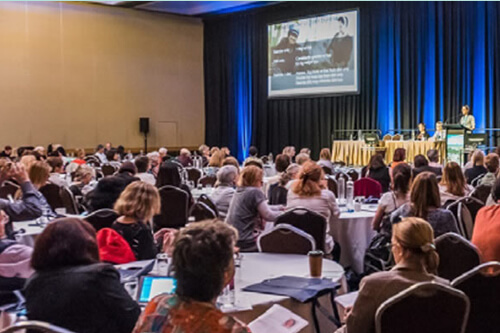




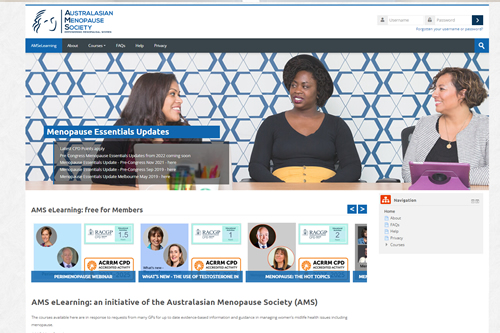
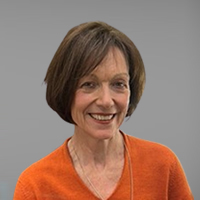 President
President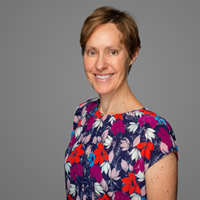
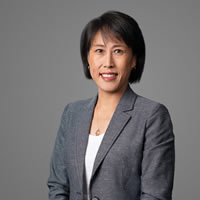
 Treasurer and WA Director
Treasurer and WA Director
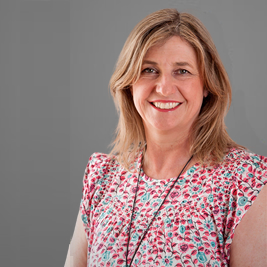 Dr Marita Long MBBS FRACGP DCH Cert of Sexual and Reproductive Health: VIC/TAS Director
Dr Marita Long MBBS FRACGP DCH Cert of Sexual and Reproductive Health: VIC/TAS Director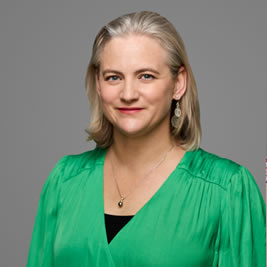 Dr Carmel Reynolds MBBS, DCH FRACGP Cert Family Planning: SA/NT Director
Dr Carmel Reynolds MBBS, DCH FRACGP Cert Family Planning: SA/NT Director Dr Lauren Goldschmidt MBBS MRCGP DRCOG DFRSH: NZ Director
Dr Lauren Goldschmidt MBBS MRCGP DRCOG DFRSH: NZ Director
 Vicki Doherty BSc(Hons) PGDipEd(Int Ed) MPH AFACHSM GAICD
Vicki Doherty BSc(Hons) PGDipEd(Int Ed) MPH AFACHSM GAICD